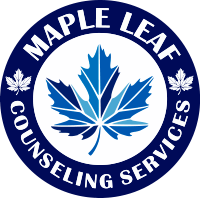Dual diagnosis treatment is a specialized approach designed to help individuals who are dealing with both a mental health condition and a substance use disorder (SUD). Understanding and treating both conditions simultaneously is crucial for a successful recovery. For more information about dual diagnosis treatment and how it can help, call 888.513.9317 or contact Maple Leaf Counseling online today.
What Is Dual Diagnosis?
Dual diagnosis, also known as co-occurring disorders, occurs when a person has both a mental health issue and a substance use disorder. These conditions often feed into each other, making it essential to treat them both at the same time.
Common Mental Health Issues in Dual Diagnosis
Here are some common mental health issues that often accompany a substance use disorder:
- Depression
- Anxiety disorders
- Bipolar disorder
- Schizophrenia
- Post-traumatic stress disorder (PTSD)
- Attention-deficit/hyperactivity disorder (ADHD)
- Borderline personality disorder
Why Dual Diagnosis Treatment Is Important
Treating only the SUD or the mental health issue doesn’t address the whole problem. If one condition is left untreated, it can worsen the other. For example, someone with untreated depression might turn to alcohol to cope, which can make their depression worse. Treating both issues simultaneously increases the chances of a successful and sustainable recovery. It helps address the root causes of each condition and reduces the risk of relapse.
Navigating Treatment Options for Dual Diagnosis
Finding the right treatment can feel overwhelming, but it’s essential to choose a program that addresses both conditions. Here are some tips for navigating treatment options for dual diagnosis.
1. Integrated Treatment Programs
Look for integrated treatment programs that offer comprehensive care for both mental health and substance use disorders. These programs usually have a team of professionals, including therapists, doctors, and addiction specialists, who work together to create a personalized treatment plan.
2. Therapies and Counseling
Therapies and counseling are critical parts of dual diagnosis treatment. Cognitive-behavioral therapy (CBT), dialectical behavior therapy (DBT), and other evidence-based therapies can help you understand the connection between your mental health and substance use. Counseling can also provide you with coping strategies and skills to manage both conditions.
3. Medication Management
Medications can be an essential part of treatment for both mental health and substance use disorders. It’s important to work with a healthcare provider who understands dual diagnosis to manage your medications effectively. They can prescribe medications that help with mental health issues while considering the impact on your SUD.
4. Support Groups
Support groups can offer emotional support and practical advice from people who are going through similar experiences. Groups like Alcoholics Anonymous (AA), Narcotics Anonymous (NA), and Dual Recovery Anonymous (DRA) can be valuable resources.
5. Family Involvement
Involving family members in your treatment can provide additional support. Family therapy can help address any family dynamics that might contribute to your mental health or substance use issues.
Recovery is a journey, and finding the right support is crucial for long-term success.
Choosing the Right Treatment for Dual Diagnosis
When choosing the right treatment for dual diagnosis, consider the following:
- Accreditation – Ensure the treatment center is accredited and has qualified professionals.
- Personalized care – Look for programs that offer individualized treatment plans tailored to your specific needs.
- Evidence-based treatments – Choose a program that uses evidence-based therapies and treatments.
- Aftercare support – Effective treatment programs provide aftercare support to help you maintain your recovery after leaving the program.
Finding the right treatment for dual diagnosis can be a challenging process, but it’s a crucial step toward a healthier and more stable life. By considering these factors and seeking comprehensive, integrated care, you can embark on a path to lasting recovery. Remember, you’re not alone, and there are resources and support systems available to help you every step of the way.
Find the Help You Need — Contact Maple Leaf Counseling for Dual Diagnosis Treatment Today
Dual diagnosis treatment is essential for anyone dealing with both a mental health issue and a substance use disorder. Understanding the importance of treating both conditions simultaneously and knowing how to navigate treatment options can significantly improve your chances of recovery. Call 888.513.9317 or contact Maple Leaf Counseling online to begin dual diagnosis treatment and regain control of your life today.




